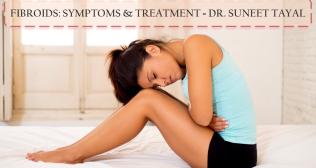}}drupal-data/images/blog-details.png)
Obstetrics and Gynaecology
Keep Your Child Safe From Allergies
Keep Your Child Safe From Allergies Jun 24, 2014
 Just like elders, kids are also prone to developing different types of allergies. There can be various reasons (allergens) like dust, pet dander, pollens or even some type of food. The prospect of developing allergies often runs in the genes. However, it doesn’t mean that if parents have a specific allergy, their kids will definitely develop it. Some children have allergies even if nobody in the family is allergic. A child who is allergic to one substance is likely to be allergic to others as well.
The good news is that with proper diagnosis, preventive measures and treatment, most kids can prevent allergies and live healthy lives.
What’s an allergy?
An allergy is an over-reaction of the immune system to a substance. The body’s immune system treats the substance as an ‘invader’ and reacts adversely.
Common airborne allergens
• Dust mites — one of the most common causes of allergies in kids. They usually thrive in upholstery, bedding and carpets.
• Pollen is another cause of allergies in children. Trees, grass and weeds release pollens into the air.
• Molds are another common allergen. They can be found in poor drainage areas or poorly ventilated places like bathrooms and or kitchen sinks.
• Pet allergens — when the pet (animal) licks itself, the saliva gets on its fur and upon drying flies into the home. Pet allergens are present in fur, dander, hair and urine.
Other common allergens
• Medicines: Antibiotics or OTC medicines may cause allergic reactions in children.
• Insect stings: For some kids being stung by an insect can cause severe symptoms.
• Chemicals: Some kids develop allergic reactions to the chemicals in cosmetics, detergents, household cleaners, pesticides, etc. These may trigger itchiness and rashes.
Food Allergy
If your kid has any reaction after eating a certain type of food, s/he will have the reaction, every time s/he eats that food. Food allergies usually aren’t life-long except a few. Avoiding that food is the only way to avoid symptoms.
Some common food allergens include milk, peanuts, soya, wheat, etc.
symptoms of allergies
Symptoms can range from minor or severe. From seasonal to throughout-the-year problems. Airborne allergens can cause allergic rhinitis. Symptoms may include:
• Sneezing
• Itchy nose
• Nasal congestion
• Coughing
• Trouble in breathing
Allergic conjunctivitis is also caused by airborne allergens. If the kid starts wheezing with short breath, he may be developing asthma.
Diagnosing Allergies
If your child has symptoms lasting longer than a week or at a particular time of a year, consult the doctor. S/he will likely ask questions about his/her symptoms and triggers. Based on the answers and a physical exam, S/he will prescribe medications or may refer you to an allergist for extensive therapy.Allergist may perform skin tests for the common allergies. Blood tests may be required in kids who are extremely sensitive to a particular allergen.
Treating Allergies
There is no real cure for allergies, but it is possible to relieve symptoms. The best way is to minimise or eliminate exposure to allergens. Parents must educate their kids often about their allergy and allergic reactions and triggers which may aggravate their symptoms and coping strategies. Informing their teachers, other family members, siblings, parents of your child's friends, etc. about your child's allergy is imperative.
Preventing Allergies
These can help kids avoid airborne allergens:
• Keep pets out of your child's bedroom and bathe them frequently if required
• Remove carpets
• Don't hang heavy curtains which allow dust to accumulate.
• Seal pillows and beddings properly.
• Keep windows closed when pollen season is blooming.
• Keep bathrooms clean and dry
Just like elders, kids are also prone to developing different types of allergies. There can be various reasons (allergens) like dust, pet dander, pollens or even some type of food. The prospect of developing allergies often runs in the genes. However, it doesn’t mean that if parents have a specific allergy, their kids will definitely develop it. Some children have allergies even if nobody in the family is allergic. A child who is allergic to one substance is likely to be allergic to others as well.
The good news is that with proper diagnosis, preventive measures and treatment, most kids can prevent allergies and live healthy lives.
What’s an allergy?
An allergy is an over-reaction of the immune system to a substance. The body’s immune system treats the substance as an ‘invader’ and reacts adversely.
Common airborne allergens
• Dust mites — one of the most common causes of allergies in kids. They usually thrive in upholstery, bedding and carpets.
• Pollen is another cause of allergies in children. Trees, grass and weeds release pollens into the air.
• Molds are another common allergen. They can be found in poor drainage areas or poorly ventilated places like bathrooms and or kitchen sinks.
• Pet allergens — when the pet (animal) licks itself, the saliva gets on its fur and upon drying flies into the home. Pet allergens are present in fur, dander, hair and urine.
Other common allergens
• Medicines: Antibiotics or OTC medicines may cause allergic reactions in children.
• Insect stings: For some kids being stung by an insect can cause severe symptoms.
• Chemicals: Some kids develop allergic reactions to the chemicals in cosmetics, detergents, household cleaners, pesticides, etc. These may trigger itchiness and rashes.
Food Allergy
If your kid has any reaction after eating a certain type of food, s/he will have the reaction, every time s/he eats that food. Food allergies usually aren’t life-long except a few. Avoiding that food is the only way to avoid symptoms.
Some common food allergens include milk, peanuts, soya, wheat, etc.
symptoms of allergies
Symptoms can range from minor or severe. From seasonal to throughout-the-year problems. Airborne allergens can cause allergic rhinitis. Symptoms may include:
• Sneezing
• Itchy nose
• Nasal congestion
• Coughing
• Trouble in breathing
Allergic conjunctivitis is also caused by airborne allergens. If the kid starts wheezing with short breath, he may be developing asthma.
Diagnosing Allergies
If your child has symptoms lasting longer than a week or at a particular time of a year, consult the doctor. S/he will likely ask questions about his/her symptoms and triggers. Based on the answers and a physical exam, S/he will prescribe medications or may refer you to an allergist for extensive therapy.Allergist may perform skin tests for the common allergies. Blood tests may be required in kids who are extremely sensitive to a particular allergen.
Treating Allergies
There is no real cure for allergies, but it is possible to relieve symptoms. The best way is to minimise or eliminate exposure to allergens. Parents must educate their kids often about their allergy and allergic reactions and triggers which may aggravate their symptoms and coping strategies. Informing their teachers, other family members, siblings, parents of your child's friends, etc. about your child's allergy is imperative.
Preventing Allergies
These can help kids avoid airborne allergens:
• Keep pets out of your child's bedroom and bathe them frequently if required
• Remove carpets
• Don't hang heavy curtains which allow dust to accumulate.
• Seal pillows and beddings properly.
• Keep windows closed when pollen season is blooming.
• Keep bathrooms clean and dry 


















